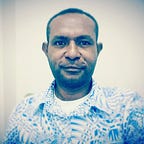What do we mean by owning our economy?
Yesterday Papua New Guinea heard great fiery statements from Prime Minister Hon. James Marape and Oro Governor Hon. Gary Juffa about Taking Back PNG and owning our economy.
Both gentlemen seemed to have signaled a nation’s shift towards “resource nationalism” — or at least that’s how western media has already interpreted their “tok pisin” which was spoken in plain English.
Both reflected a public sentiment regarding “economic independence” that has lingered for decades amongst many Papua New Guineans.
As a left leaning writer and communicator I found myself awkwardly worrying about how their words might affect foreign direct investment. I mean why should I be worrying about those foreign capitalists that have a history of exploiting my country.
But I also felt challenged as a Papua New Guinean writer to help my two compatriots communicate their message.
My perception of what was said yesterday was a call to Take Back PNG through our Papua New Guinean Ways — Fifth National Goals and Directive Principle — in order to achieve the Third National Goal and Directive Principle which calls for both political and economic independence.
Many leaders who spoke in Parliament railed against western “frames” such as the adversarial politics of Government vs. Opposition that has ruined our nation. Indeed it is because of this frame that every Prime Minister is afraid of being thrown out of Office the moment he steps in and tends to misallocate scarce national resources to maintain power.
What are frames?
Many Christians will be familiar with the phrase from the gospels that says “in the beginning was the Word and the Word became flesh”.
For those of us who are communicators, the word does become flesh. A frame can in the literal sense be a picture frame, window frame or video frame that shapes the way one sees the world. A frame can also be in a nonliteral sense refer to the way we create images and stories influence the way people think and take action.
And so as I reflected on the messages of many of our leaders, yesterday I looked through the window of Melanesian egalitarianism as opposed to western frames of nationalism or patriotism. Our leaders were urging Prime Minister Marape to share the pig he had killed even with the Opposition. The fathers in the house were advising their son about good leadership. The uncles who had been forgotten for a long time were telling their son to come visit them at their house some time.
I grew up in my remote village that still doesn’t have much contact with the outside world today and what I saw yesterday reminded me of the speeches back home. What the Prime Minster and Governor Juffa were talking about was how we gain real value from our economy and distribute that value with our people. This is consistent with PNG culture where the “owner” of the pig does not eat alone nor does the person who kills a cassowary swallow the whole lot alone.
Gaining real value as opposed to ownership
I prefer to use the frame “gain real value” as opposed to “ownership” because I think a lot of our leaders, intellectuals and ordinary people have been blind sided by an obsession with ownership.
You don’t need to own something to gain real value. Look at how some exploration companies have come to PNG and setup K 1.00 companies then obtained licenses and raised money using the license then sold off their interests once a resource has been discovered and made big bucks. They used money they didn’t own to explore a resource they didn’t own to make Billions — e.g. InterOil.
Everyone’s favourite “equity participation” does not guarantee gaining real value. You only earn something if the company declares profit. Besides, for natural resource projects, real value lies in all the procurement contracts related to the project. This is why PNG needs clearly defined and legislated templates for National Content Plans for all its natural resource sectors. Right now companies call the shots on national content.
For the state, the mechanisms of gaining real value are many. States can collect royalties, taxes, fees, charges, fines, duty, etc…
For the citizens, its by various affirmative actions of state that enable economic empowerment. Such actions may include legislative reforms (restrictions on business activities), direct financial assistance, and building enabling infrastructure that connects the rest to PNG to its economic silos (connect mining, logging, oil palm towns, etc… to the rest of the PNG economy).
What are the value indicators that tell us that we’ve Taken Back PNG?
In this increasingly changing world where ownership is globalized, what matters most is how much you can gain out of something as opposed to who owns what.
